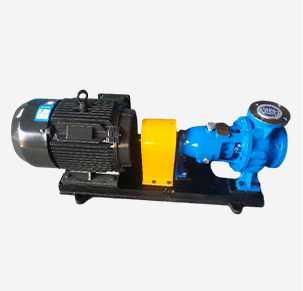English
- Afrikaans
- Albanian
- Amharic
- Arabic
- Armenian
- Azerbaijani
- Basque
- Belarusian
- Bengali
- Bosnian
- Bulgarian
- Catalan
- Cebuano
- Corsican
- Croatian
- Czech
- Danish
- Dutch
- English
- Esperanto
- Estonian
- Finnish
- French
- Frisian
- Galician
- Georgian
- German
- Greek
- Gujarati
- Haitian Creole
- hausa
- hawaiian
- Hebrew
- Hindi
- Miao
- Hungarian
- Icelandic
- igbo
- Indonesian
- irish
- Italian
- Japanese
- Javanese
- Kannada
- kazakh
- Khmer
- Rwandese
- Korean
- Kurdish
- Kyrgyz
- Lao
- Latin
- Latvian
- Lithuanian
- Luxembourgish
- Macedonian
- Malgashi
- Malay
- Malayalam
- Maltese
- Maori
- Marathi
- Mongolian
- Myanmar
- Nepali
- Norwegian
- Norwegian
- Occitan
- Pashto
- Persian
- Polish
- Portuguese
- Punjabi
- Romanian
- Russian
- Samoan
- Scottish Gaelic
- Serbian
- Sesotho
- Shona
- Sindhi
- Sinhala
- Slovak
- Slovenian
- Somali
- Spanish
- Sundanese
- Swahili
- Swedish
- Tagalog
- Tajik
- Tamil
- Tatar
- Telugu
- Thai
- Turkish
- Turkmen
- Ukrainian
- Urdu
- Uighur
- Uzbek
- Vietnamese
- Welsh
- Bantu
- Yiddish
- Yoruba
- Zulu
Telephone: +86 13120555503
Email: frank@cypump.com
Oct . 21, 2024 10:43 Back to list
Efficient Solutions for Wastewater Injection Pump Systems in Modern Infrastructure
Understanding Sewer Injection Pumps Essential Components for Waste Management
In today’s world, effective waste management is crucial for maintaining public health and environmental sustainability. One of the key components in wastewater treatment systems is the sewer injection pump. These pumps play a vital role in transporting sewage and waste material from homes and businesses to treatment facilities, ensuring efficient sanitation and minimizing environmental impact.
What is a Sewer Injection Pump?
A sewer injection pump, often referred to as a sewage pump, is a specialized device designed to move wastewater uphill or through challenging plumbing systems. Unlike regular pumps, sewer injection pumps are engineered to handle solid waste, including toilet paper and human waste. They operate using a centrifugal mechanism, where the rotation of the impeller creates a difference in pressure, enabling the liquid to be pushed through the discharge pipe.
Types of Sewer Injection Pumps
There are several types of sewer injection pumps, each designed to meet specific needs based on the application
1. Submersible Pumps These pumps are installed below the water surface. They are often used in basements or below-grade applications where sewage might pool. Submersibles are efficient and designed to run continuously, making them reliable choices for residential and commercial settings.
2. Effluent Pumps These are used to move lesser amounts of wastewater, typically in septic systems. They can handle smaller solids and are suitable for lighter-duty applications compared to more robust sewage pumps.
3. Grinder Pumps This type of pump comes equipped with a grinding mechanism to break down solids, both large and tough. It’s ideal for municipal wastewater systems and commercial applications, where tougher waste materials are present.
Each type of pump has specific applications, with considerations to the expected volume of waste, the solids present in the wastewater, and the layout of the plumbing system.
Key Features of Sewer Injection Pumps
sewer injection pump

Sewer injection pumps are designed with several features that enhance their functionality, efficiency, and longevity
- Durability Made from corrosion-resistant materials, these pumps are built to withstand harsh conditions and the abrasive nature of wastewater.
- Automatic Operation Many pumps come equipped with float switches or sensors that automatically turn the pump on and off as needed, ensuring that the system operates efficiently without manual intervention.
- High-Quality Seals To prevent leaks and contamination, sewer injection pumps often feature high-quality seals designed to withstand the pressures and challenges of wastewater environments.
- Compact Design Modern sewer pumps are designed to fit in tight spaces, making them suitable for retrofitting existing systems without requiring extensive modifications.
The Importance of Maintenance
Regular maintenance of sewer injection pumps is crucial to ensure their effective operation and longevity. Neglecting maintenance can lead to pump failures, which may result in sewage backups, unpleasant odors, and potential health hazards. Simple tasks, such as regular inspections, cleaning of the pump, and checking for any wear and tear, can go a long way in preventing costly repairs and ensuring that the pump operates smoothly.
Environmental Impact and Compliance
Proper waste management and the effective operation of sewer injection pumps play a significant role in minimizing environmental pollution. Compliance with local regulations is critical. Many municipalities have specific guidelines in place regarding the installation and maintenance of sewage pumps to ensure public health and environmental protection.
Conclusion
Sewer injection pumps are integral to modern sewage systems, facilitating the efficient transportation of wastewater. With various types available to suit different applications, it is essential to choose the right pump to meet specific needs. Regular maintenance is key to ensuring longevity and reliability, while adherence to environmental regulations ensures that local communities remain safe and clean. As we continue to seek out efficient waste management solutions, understanding the role and function of sewer injection pumps becomes increasingly important in fostering a sustainable future.
-
Horizontal Split Case Pump with GPT-4 Turbo | High Efficiency
NewsAug.01,2025
-
ISG Series Pipeline Pump - Chi Yuan Pumps | High Efficiency, Durable Design
NewsAug.01,2025
-
Advanced Flue Gas Desulfurization Pump with GPT-4 Turbo | Durable & Efficient
NewsJul.31,2025
-
ISG Series Vertical Pipeline Pump - Chi Yuan Pumps | Advanced Hydraulic Design&Durable Construction
NewsJul.31,2025
-
ISG Series Vertical Pipeline Pump - Chi Yuan Pumps | Energy Efficient & Low Noise
NewsJul.31,2025
-
pipeline pump - Chi Yuan Pumps Co., LTD.|High Efficiency&Low Noise
NewsJul.31,2025










